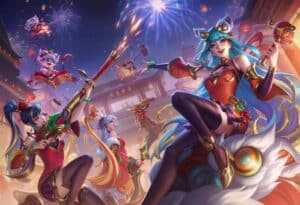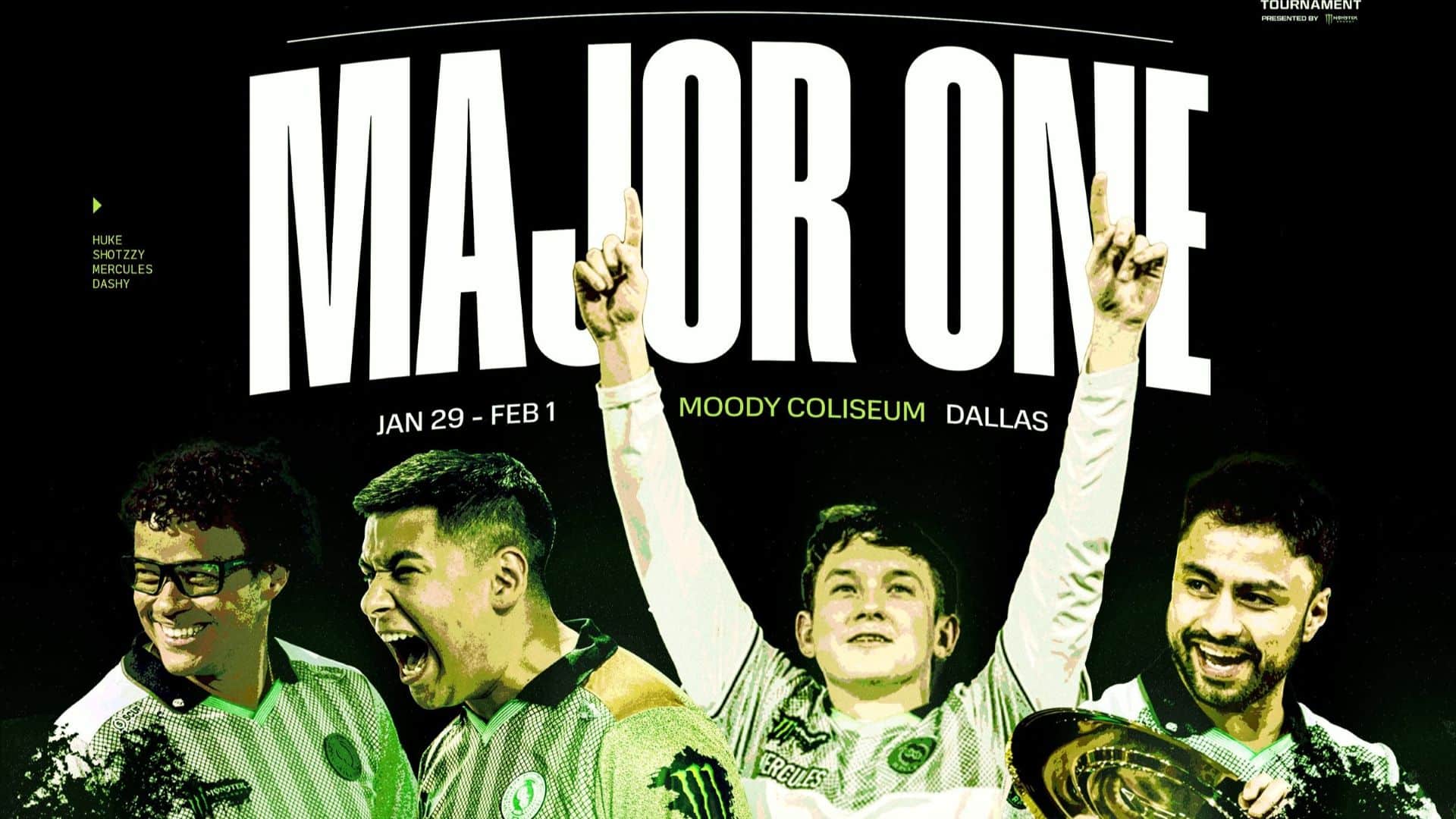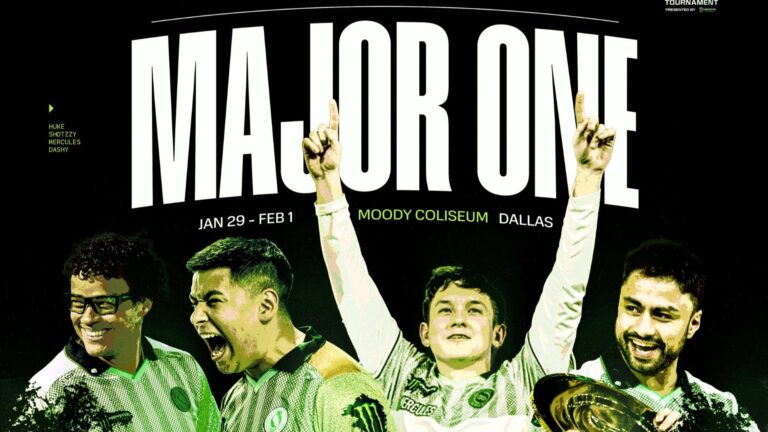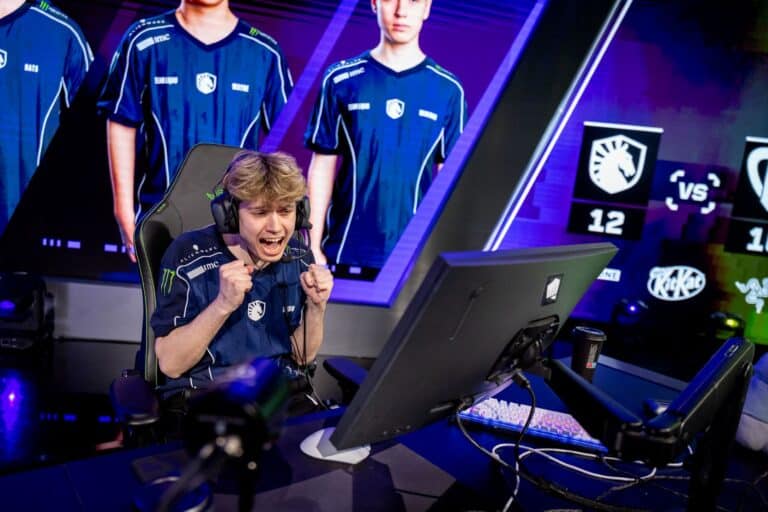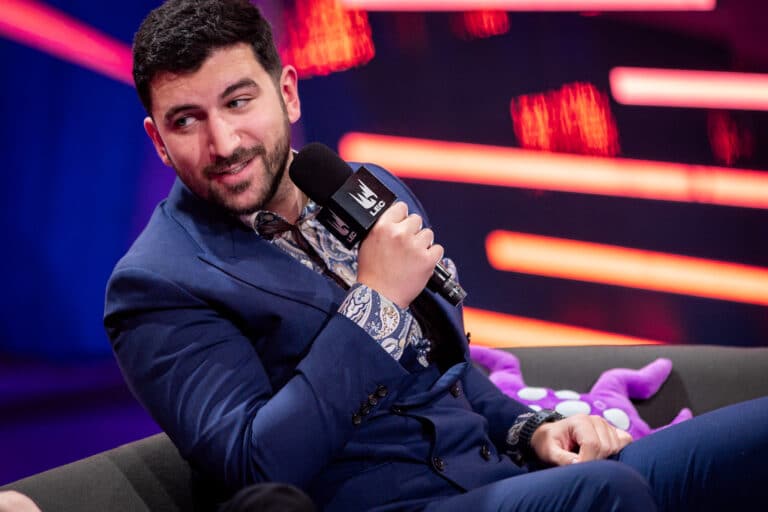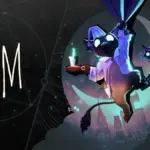New COO Grant Rousseau talks bringing NIP back to the top of CS
Jack Stewart, Senior Editor
Last Updated: 02/10/2025
Esports News UK spoke with Grant Rousseau, the newly appointed Chief Operating Officer at Ninjas in Pyjamas.
In this interview, Rousseau discusses his time at Team Falcons, his core pillars of what makes a good team, working in China and the LPL, and how he plans to take NIP back to the top of Counter-Strike esports.
What are your aims and ambitions at Ninjas in Pyjamas, and how are you hoping to go about accomplishing them?
So obviously, very excited to join with this opportunity. I think NIP and the NIP Group is in a really, really good spot, and it’s not like I’m coming in to sort of make massive sweeping changes or anything like that.
So I think you know there are a lot of accomplishments we want to achieve around the esports side, no surprise.
But ultimately, it’s about just taking things forward incrementally.
In the short term, there will be a focus from me on the esports side and seeing if we can bring this org back to the top of the performance side of things.
It’s not like you’re going to see some giant thing happen, I think it’s all in a good spot and it’s just a case of taking it forward bit by bit with the knowledge I have.
I know that you say you’re focused on esports performance for now, but there was also mention of non-competitive improvements as well. Can you expand on exactly what those are?
When it comes to just NIP, obviously, there’s the other departments I’ll be looking at whether it comes to marketing, commercial, all these other areas and seeing where we can improve those, if even necessary.
Being part of the NIP Group as well, there’s all the other pathways and divisions we have now.
Down the line, I’ll be starting to see how I can bring my experience and my operational knowledge to those industries and those companies as well and seeing where I can support.
There’s sort of a step-by-step plan. The first step, not a surprise, is the esports side, but there’s development to come with it of how that can support other divisions and other parts, both in like NIP esports, in like eStar over in China, and then the NIP Group as a whole.
At Falcons, you had to expand into a ton of esports all at once. Is that the plan here, or are you going to be just focusing on a few teams at a time?
I mean, they’re very different projects.
What NIP is currently known for, you know, is CS here and then over in China, it’s the LPL and KPL, League of Legends and Honor of Kings.
Those are probably the big three right? So it’ll be a lot of working with those and continuing their success.
It’s great to see the CS team getting back to the major… touchwood. Technically not there yet, but it should be.
And over in the China side really starting to drive forward. So there’ll be a lot more growth there. There has been some expansions over the last year.
You’ve seen Rocket League, Street Fighter, a few things here and there. So again, it’s not about me coming and going like oh we’re going to do this, this, this and this. It’s not the case.
It’s very much seeing where everything’s at, seeing what can make small improvements, and if that includes an expansion to a new game because it makes sense financially or for a certain reason, I’ll look at that.
But yeah, for now my focus is definitely improving what we have.
You mention the LPL team, I believe it’s a new experience for you getting to work in China and with a Chinese team. That’s a huge industry with how big esports are over there, so how are you feeling about working in China?
Yeah, it was a huge attraction for me.
It’s gonna sound like I’m ticking off boxes, having done America and Europe and MENA. Then let’s do another one with China.
But no, I’ve been to China a few times because my brother happened to live there for the last five, six years.
So it’s a culture I know, it’s a country I know from that sense, and I’ve got to sort of dabble in the esports side when I’ve been over just to get a sense of what it’s about.
Ultimately, it’s a major project, right? It’s a major step.
Unsurprisingly, they run in their own way, right. They run quite separately to other divisions over here, of course.
So it’s a big step to sort of see how things are done here, can combine with things that are done there and how we can all support one another.
Like what I’ve learned during my time at MENA, you know cultures are very different so it doesn’t mean that Western processes work with MENA processes and vice versa.
So it’ll be a case of learning, it’ll be a case of understanding, and it’ll be a case of seeing where that support can come in.
But my experience with having to learn the MENA market right and adjust the way I work accordingly should hopefully be applicable to entering the Chinese market.
That follows on quite nicely to my next question: what did you learn from Team Falcons and how was your experience there?
I think the easiest way to say, because it was such a blank slate for me coming in, it was very much a proof of concept for the ideas I had and the way I wanted to build or create divisions in esports.
And it was also the ability for me to work not just in performance but to work across the different divisions.
I know I was in charge of esports, but behind the scenes, it was getting to see how content work, commercial work, and marketing work. All amongst a new culture, so it was very unique.
I’ll be working very widely across all these divisions. So the ability to have proof of concept on esports and then learn those other aspects allows me to come to NIP and bring a more sort of vast set of knowledge now across the esports business as a whole.
Alongside the idea of learning a new culture to make that applicable to China and to eStar and all the other divisions of the NIP Group.
Effectively, it was building experience in different divisions and learning how to adapt accordingly.
Having teams in 20+ different esports, you’re always going to get a ton of experience. You said it confirmed proof of your concepts, can you expand on what those concepts are?
Somewhat, I mean this is going to sound weird to say, like I can’t give the secret sauce away too much.
But yeah, like there are three or four pillars that I live by.
That is what I like to bring across the company as a whole, right like it’s about esports but it’s across the company as a whole. It’s for all staff to work towards.
It’s been a long time in the making and it’s through a lot of books and a lot of learning and seeing what works. A lot of it’s based on Pep Guardiola’s work and how he works, and a few other areas.
So it’s bringing those pillars into NIP. The good news as I sat down with NIP, with Hicham, and went, right, here’s how I like to work, show me how you like to work, your pillars.
Three of the four are already aligned and the same, which is brilliant. That’s a really good sign. So that’s why I talk about not coming and having to make major changes.
So you know, without giving too much away around transparency the way we work is stuff around how every one per cent matters.
It’s stuff around unity and everyone being on the same page, those are the general terms that just help everyone drive forward towards better performance as a whole company right and that benefits the esports teams as well.
Okay that’s very interesting, thank you. How do you go about assessing when you join a new organisation? Assessing those teams and figuring out what to improve and how to improve? Because I’m sure it’s more than just signing new players.
Yeah it’s never like that, I think actually sometimes the worst thing that can happen, coming in and being like ‘I want to sign these players’. No.
It’s a lot of observation, a lot of observation in the early weeks, understanding the process.
I try to take the players out of it, so the players have got nothing to do with it. And what I’m trying to do, is I’m trying to observe the operations and the methods of work from top to bottom of how that interacts with the players and interacts with the teams.
Politely, if you want to get a better player, you’ll just go get a better player right?
But how you work with the players, how you implement stuff for the players, how the feedback works, how the coach systems work, these are all the aspects that make a player better.
So it’s an observation, combined with then seeing how my philosophies fit with what already exists or do we need to bring something in, or do I need to adapt my philosophy, or does it need a complete overhaul?
Like trying to figure out how my ideas fit in to give it the best implementation, the fastest implementation possible, and then from there it’s working with the staff we have and helping them understand these ways of work and why I believe they’re correct and how we can work those together.
Their ideas then start to come in, what they’ve seen that is good, so then it’s just more collaboration.
So yeah observation, implementation, collaborations, it’s kind of about the ‘ations, the three ‘ations.
For sure. You mentioned earlier, bringing success back to the Counter-Strike team will be a huge priority. Can you talk about kind of what went wrong with Team Falcons in Counter-Strike and how you plan to, not overhaul but help the current NIP CS team?
Sure, I mean, I don’t know if there’s much for me to say on the Falcons Counter-Strike side. I think there were a lot of moving parts there.
Some bits I was involved in, many bits I wasn’t involved in. Counter-Strike is a hard game to crack, right?
And having the best players is one way to do it, but we all know that whether you have the best players or don’t, there are just so many moving parts to a good Counter-Strike team.
Sometimes it’s just having Zywoo on your team you know, and sometimes it’s having you know a kind of a mouse setup where the five players come together in the best way possible.
I’m not sure there’s a lot for me to say on Falcons, they’re on a good path now and I’m glad to see that.
And I think with NIP, I can see a lot of low-hanging fruit even from just a few days here, a lot of low-hanging fruit with the current systems, the way the team’s set up, that hopefully I can bring in and help them to continue the path upwards.
But the good news is, they’re on that path upwards, right? They should be back at the major from the looks of it. That trend is moving up, up, up. They’ve had some real good moments, a couple of PGL events and similar.
I think it’s a boring answer, but it’s going to be incremental support and incremental changes, because ultimately they’re on the right path now. We’ll get there.
In general, what do you think is the key to success, what makes a good team in esports? Is it just getting a good group of players who synergise together, or is it much deeper than that?
So the answer, there’s a lot to it. Of course there is. But I think there are a few areas.
On the team side, right, purely the player side, how you create that team. Let’s assume it’s a group game, so there’s four or five players.
How you create that team balance across three different areas is what I tend to look at.
I take a lot from basketball philosophy, being a five-person game and how they balance sort of the leadership in terms of voices versus the talent, the actual talent abilities versus the position in the team.
Voices, hierarchy, and talent balance each other out in a set way to create the perfect team. You can’t have five superstars in the team; it never works, despite many attempting.
So there’s that aspect right, and how we build and create that team. Then you’ve got the step back, how do the coaching systems work? How do you develop these players? How do you ensure there’s good feedback? How do you ensure longevity of the team?
Because they’re working together, functioning well together, they’re happy together and that all comes down to the coaching philosophies and systems there.
And there’s an even further step back, how do the operational setups around the team work? How does it ensure that the players can focus on playing, the coaches can focus on coaching, but also that the coaches are being pushed and they’ve got their own goals and they’re improving?
So it’s just like each layer upwards, it’s just an integral part. Like back 10 years ago, you could have five good players, but now like you need every part to be correct, and there’s so many parts on the out-of-game performance aspect that is so critical.
Even travel systems and sleep systems, nutrition systems we all know about now. Development systems for the youth coming through.
So you make sure you have the next generation and the scouting that goes with it, there’s all of these different steps now you know, similar to professional sport, but hopefully that’s a little bit of insight. You just have to tackle each of these areas.
And it’s a case of, what can I tackle tomorrow versus what do I need six months to tackle to start getting those wins for NIP.
It really is like traditional sport now, where you have to find every one per cent of gain. Very cool.
To close things off, this is very off topic, but we are Esports Eews UK after all, so we have to ask. You’ve now worked in a lot of different regions, so what are your thoughts on the current state of UK esports?
Oh god.
I say oh God because it’s not always positive. I could talk about the UK esports scene for hours on end. I think some people have heard me talk about it for hours on end.
Unfortunately, the word I use is frustration, because I feel like there is no reason why the UK should be behind the likes of Europe, forgetting America and Asia.
Like, it’s behind the rest of Europe right now. We see how many events France is holding, how many events other countries are holding. But also their organisational success, their talent success.
It’s frustrating me because we’ve had opportunities last year, I think we had like a record number of major events held in the UK, and that was amazing, and we just haven’t capitalised on it.
Unfortunately, I think some UK orgs stepped backwards as well and just in general, like a lack of jobs and lack of opportunities. We could talk about, you know, our government involvement. We could talk about who’s investing in the industry.
It’s kind of hard to pinpoint exactly what’s wrong, but I think, unfortunately, there still is a lack of focus and identification that it can be something that’s good for the economy and good for GDP growth.
I think it could be a very easy win for the British economy. A lot of British people are gamers, but ultimately because there is a failure to want to focus on it and to kind of insist on seeing gaming as a dark age thing here in the UK, for whatever reason, we’re just falling behind the rest of Europe, and that’s a shame.
But the Esports Nation’s Cup that’s coming, I think that could be a great platform opportunity for the UK to kind of force us to focus on it right. Like, we’re gonna have to put some teams together.
We have had a lot of events, some of those events are coming back, like Dreamhack is coming back together with the DOTA event and we assume CoD. I don’t think anything’s known there, but certainly at least DOTA and Dreamhack are coming back.
There are a few things coming back; I just hope we can take advantage of it.
Given we’re such a sports country and we like competing, it’s surprising to me. But maybe that’s the issue, maybe that’s the reason. We’re too focused on football, rugby and cricket. I don’t know.
Jack Stewart, Senior Editor
In my seven years of esports writing, I've introduced esports coverage to newspapers, interviewed some of the biggest names in the industry, and driven viewers mad with the puns in my YouTube scripts. I'm most proud of the latter.
Stay Updated with the Latest News
Get the most important stories delivered straight to your Google News feed — timely and reliable





From breaking news and in-depth match analysis to exclusive interviews and behind-the-scenes content, we bring you the stories that shape the esports scene.
Monthly Visitors
User Satisfaction
Years experience
Latest Interviews
